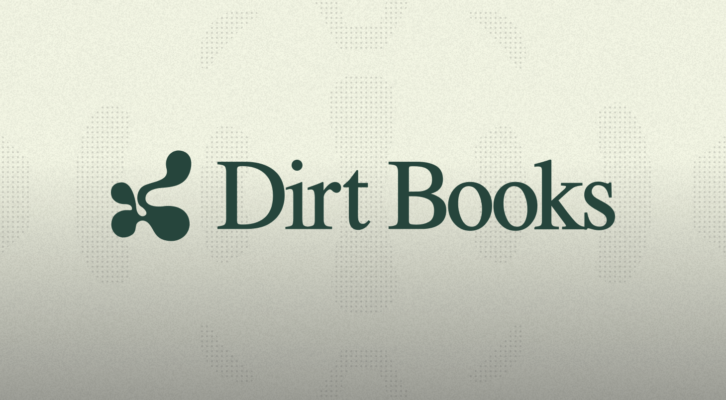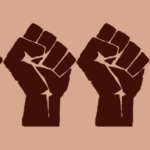Peter Swanson is the Sunday Times and New York Times best-selling author of eight novels, including The Kind Worth Killing, winner of the New England Society Book Award, and his most recent, Nine Lives.
The further I got into this conversation, the more I realized how well Peter Swanson matched his chosen genre. Peter’s a classic, a throwback, in many ways, to the golden age of mystery novels. From his quaint office in Maine, to his always well-behaved cat, Peter Swanson has all the hallmarks of a mystery novelist. He also has possibly the best justification for why you shouldn’t outline your novel that I’ve ever heard.
But we’ll get to that later. Since I was talking to a man who had eight books under his belt, I wanted to see if he could recall what publishing his first novel felt like. And that’s just where I started.
Eli Cranor: So, you’ve been at this thing a while. Can you remember how you felt before your first novel was about to come out?
Peter Swanson: I wasn’t nervous at all with my first book. I was just happy to be published, I didn’t give a shit about anything else. I was forty-four. They couldn’t take it away from me. It’s a little more nerve racking now that I’m on book eight. I’ve managed to build a career. I get to do this for a living. So I’m more aware in regard to the ins and outs of book sales and keeping my publisher happy. In a weird way, I guess I’m more nervous now.
EC: Oh, don’t tell me that.
PS: Yeah, man. For a debut, you’re always going to get buzz. But you’ll have to hustle more on the second book. I don’t know, just worry about the writing. That’s all you can control. Honestly, I always feel weird talking about a book when it comes out. It’s already out of my hands. I can talk about it, sure, but I can’t change anything at that point. People are either going to like it or not. You can’t get out there and convince people of anything. Once the text is set, it’s out of my hands. The only thing I can worry about is the next one. And you’d think that process would get easier, but it doesn’t. I mean, yes, after you’ve finished one book, you at least know that you can do it, which means you should be able to do it again, but it just doesn’t make it any easier. Honestly, I think it gets harder, especially when you get into book six or seven. You’ve used a lot of stuff at that point, material you don’t want to go back to. And there are no tricks to the trade. It’s not like you just figure out how to plot a book. Every book presents its own problems. At least that’s the way it works for me.
EC: Earlier you said you were forty-four when your first book came out. Tell me more about what you were doing leading up to that.
PS: I was always writing. In college, I was an English Lit major and spent most of my twenties writing poetry. It’s what I had time for. I didn’t try writing a novel until my mid-thirties. I did it just to see if I could do it. I really thought hard about what kind of novel I wanted to write. I loved mysteries from a young age. Hardy Boys. Nancy Drew. That sort of thing. Even though I read in different genres now, I always go back to mysteries. So I started there. I wanted to see if I could write a whodunit. My main character was a poet, which tied in both of those worlds. I wrote two books with this poet character, neither of which was published, but the important thing is it taught me I could write a book. Maybe not a publishable book, but a book with a beginning, middle, and end. The other thing I learned—which was surprising to me because I loved writing poetry—was that I loved writing novels even more. I love being in the middle of novel and knowing where I’m going next. Taking that long path.
EC: Yeah, man. There’s nothing better than waking up and knowing what you’re going to do that day.
PS: Now, that doesn’t always happen. There are some days you wake up and don’t have any idea what will happen next.
EC: But just knowing the book is there—that’s always a comfort to me, knowing I have work worth doing for the day.
PS: Yeah, I think my favorite part of the process is being well into a first draft, far enough you know it’s working. At that point, you really are spending half your time in that world, with those characters. For me, I’m thinking about the book when I’m on my walk, when I lay in bed at night, I wake up and think about it. I love that element of writing a novel, being immersed in it for a long time. Eventually you have to write the ending, but the middle is great too.
EC: Keep going on your journey to publication. How’d you get your break?
PS: I sent the two poet mysteries out to a hundred agents and got a hundred rejections. Actually, no, wait. I did get one agent interested in my first book. She found an editor who was interested as well. It really looked like I was going to have a sale. I couldn’t believe it. And then, within one week, that editor quit to go do children’s publishing and my agent quit the agency.
EC: Holy shit.
PS: Yeah, so I had it kind of dangled in front of me. After that, I wrote a thriller, which was the only time I’ve ever tried to write something I thought was “publishable.” This high-concept thriller thing that took place in twenty-four hours. I honestly thought it would be such a great concept that everybody would at least want to take a look at it.
EC: And?
PS: I got zero responses. It’s funny, though. After I finished that book—and I do think that was probably the worst book I’ve ever written—I sat down and wrote a novella called The Girl With A Clock For A Heart. I basically wanted to do a hardboiled type of thing but set it with college students. It struck me as odd, but I wrote it, and really enjoyed it. I sent it out and it got picked up by this ezine. Turns out, my future agent found that novella and contacted me, asking if I thought I could turn it into a novel. And that’s what I did. That’s what sold.
EC: Regarding your process, what’s the first thing you do when you get an idea?
PS: I don’t worry about it too much. That’s the first thing I do. If it feels like a good idea, I won’t write it down. I just see if I’m still thinking about it the next day. I go through that for a while. I want to see if I’m still thinking about it, still adding to it. At some point I either stop thinking about it or it grows to the point that I actually want to start writing the book. What I hope I’m doing is eliminating book ideas that aren’t strong enough. It’s a testing process. I don’t have a shortage of ideas. In fact, I probably have a glut of ideas. I try to let them fight it out a little.
EC: The fight is over and the one idea is left standing. What do you do next?
PS: I just start it. I don’t outline. I generally open a document and write the first chapter. I’m making a ton of decisions along the way. Where does it start? What’s the location, the time frame? Who’s going to tell the story? That one is really important.
EC: How do you make that choice?
PS: Well, if it’s going to be in first person, you need to justify that choice. Authors should do that more often. Why is this particular person telling this particular story? Literally.
EC: That’s so damn true. Like, why in the hell is this person just sitting here telling me this story? What’s his reason? What’s the context, the frame?
PS: The Victorian era was always worried about this. We don’t worry about it anymore. Think of Sherlock Holmes. That story is told by Watson, who’s publishing the books, and maybe embellishing them, or maybe not. It becomes this whole sort of meta thing where there’s a real reason behind the story being told. I mean, what is a first-person narration if it’s not someone’s diary or memoir? It’s very strange. But, you know, fiction is strange.
EC: Okay, back to your drafting process.
PS: Yeah, I just write the first chapter. That’s it. I just write and I’m making those decisions along the way. I’m not necessarily thinking about the full story. I’ll jot down notes sometimes. Stuff that could happen. I might have a sense of where I think it’s going to end, but other than that, there’s no outline.
EC: Have you ever tried outlining?
PS: Those first two whodunits I wrote—I outlined those. Partly because I wanted help. I was just trying to get through the book. There’s this misunderstanding that authors who don’t outline, we’re just flying along, making it up as we go. That’s not quite the case. I’m looking ahead, but I’m not plotting ahead. I know places I want to reach along the way, but I don’t do timelines. I let myself write it as I get to it. But listen, there’s a huge risk involved doing it like this, and the risk is you’re halfway through a book and it stalls. That’s happened to me. I have a couple half-books.
EC: So what is your reason? What is the benefit? What does working this way do for you?
PS: I think it keeps you open to potentially putting stuff in your book that’s genuinely surprising. Twists that arise naturally are often better. What you don’t want to do is make decisions for your characters before they come alive. I don’t want to go so far as to say that my characters make the decisions for me. They don’t. I call the shots, but I make those choices based on how a particular character has evolved during the course of the book.
EC: It gives you room to make real magic. In Megan Abbott’s talk, she mentions trying to make “weird choices” whenever possible in her writing.
PS: That’s good. If you’re in the writing process and you know exactly what will happen next then it’s basically just like filling in the blanks. But if you don’t know, then you give those weird things room to grow, like Megan said. Something bubbles up in you. Sometimes it’s disturbing, and that’s really good.
EC: Being a dude who gets to do this for a living, I’m very interested in your daily process. How do you structure your days?
PS: I basically do the same thing every day. I’m not an early person. I hit my office at nine. I make my coffee, and I write in the mornings. My basic rule is a thousand words every day on the thing I’m working on. That can change a little if I’m in the middle of a heavy edit. But if I’m working on a book, it’s a thousand words, no matter what. If it’s a day where I’m just not feeling it, or the words are coming too hard, I still make myself give a thousand words. I try to move forward seven days a week. It makes it sound like I’m super industrious, but really, when I get to my office in the morning I waste a significant amount of time.
EC: Doing what?
PS: The same thing everyone else does, which is reading news stories and sports scores on the internet. Junk stuff. Then I go get more coffee. And then there’s finally a panic moment, where I’m like, I have to start. So I start, and I get into it, and I get my thousand words and I’m done. It’s pretty rare that I hit a thousand words and want to keep going. I know I’ll come back to it tomorrow.
EC: What do you do in the afternoons?
PS: I mostly have my afternoons free. I like to take a long walk. Sometimes I think about what I’m working on. Sometimes I think about other stuff. Either way, it’s an opportunity to think. I like to read after that, maybe answer some emails. That’s my day. That’s it.
EC: Let’s talk tools of the trade. Does everything go straight into a computer?
PS: Yeah, straight in. I’ve never been confident in my handwriting. It doesn’t flow. I was a kid who moved from America to England then back to America during my early learning years. So I went from cursive to block back to cursive. I can barely write now. I’d have a really hard time if computer systems went down.
EC: What’s going on around you during these morning hours while you’re writing? Do you listen to music?
PS: I only listen to film scores while I write, which is a great procrastination tool. I spend so much time in the morning picking the perfect film scores, then I find myself reading articles on the perfect film scores. I’ve written to the Knives Out score, some old western scores. Stuff like that. Eventually, though, I get to a point where I don’t hear it, which is the point.
EC: And you have a cat, right?
PS: Yes, she’s usually by my side. My wife has her own office, so she’ll go up there sometimes too. In the end, it’s mainly just me, alone in my office with the door shut.
EC: What is your revision process like? Do you wait a bit or jump right in?
PS: It’s good if you can give it a few weeks. Sometimes you can’t because of a deadline, but if you can wait it’s good to do that. When the time comes, I print the manuscript and read it with a red pen. I read it like I’m reading a novel, but I’m scratching down notes as I go. Then I take that heavily inked-on draft and bring it back and do a second draft. After that, I usually send it along to my agent. Sometimes my wife takes a look. But, yeah, I always do a revision without anyone seeing it.
EC: This is a question I ask myself, probably too much, and now I’m going to ask it to close out this interview. Why do you write? Writing can seem so self-indulgent. So why do we do it?
PS: Good question, only because I’ve never heard it. You hear most of the same questions over the years doing things like this. For me, writing comes from my love of reading. More specifically, I want to tell a specific type of story. A mystery. While I’m writing, I picture a certain type of reader. Maybe it’s some little old lady halfway around the world, curled up with my book, completely lost in this thing I’ve created. The act of reading a book that’s absorbing is still the most effective way to get away from yourself. As much as I love movies—which I do—there’s a quality to a book’s escapism that movies can’t touch. I just want to be part of this process, the dialogue between writers and readers. I feel very fortunate to get to be on both sides of that conversation.

















